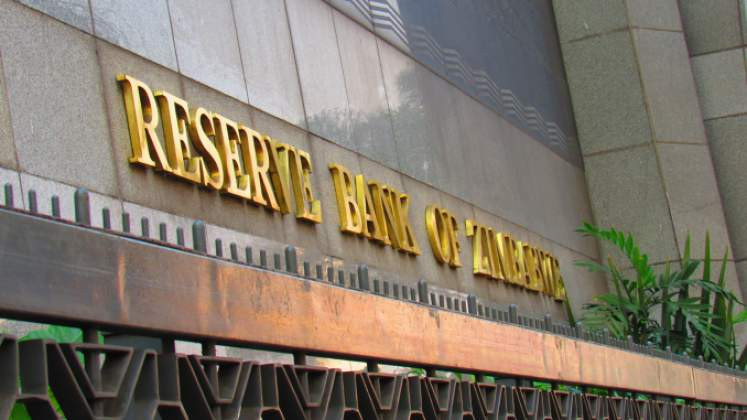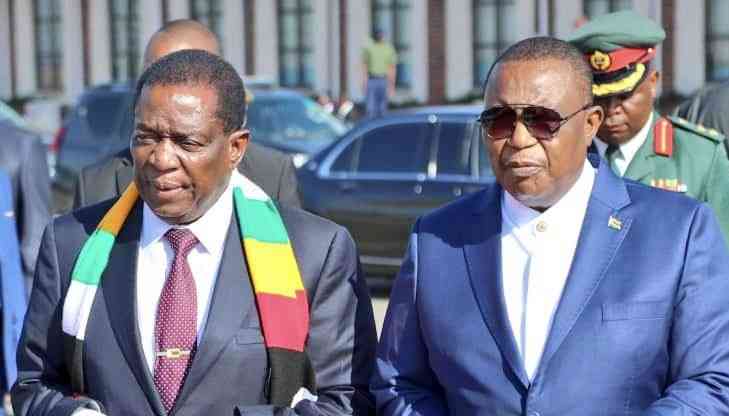
Political risk
As the nation prepares for the 2023 presidential elections, we take a holistic approach to the associated political risk.
We present two possible scenarios in assessing this risk. In one scenario, the elections will be free and fair, and otherwise in the second scenario. In light of growing political unrest — especially in rural areas — we assume a probability of scenario 1’s occurrence at 25% with the latter’s probability at 75%.
We opine that, in the event that scenario 1 plays out, Zimbabwe could see a bump in foreign direct investments, albeit small, in response to a positive perception of the country’s political environment. If the other scenario plays out, we anticipate Zimbabwe to remain an unlikely destination for FDI in emerging and frontier markets.
Whichever scenario occurs, we assert that it will marginally change Zimbabwe’s fragility poor political perception to the global community. Although this looks immaterial to our economic outlook, we allude the reader to the improving political risk in other emerging and frontier markets on the continent who could be more appealing as a destination for international financial support and FDIs at Zimbabwe’s expense.
Zambia, for example, has seen a significant improvement in its political stability index from -0,13 to 0,06 and, in turn, economic environment since the inauguration of President Hakainde Hichilema into power in 2021.
Similarly, Benin’s index score improved from -0,43 to -0,30 after the conclusion of its presidential elections in 2021. Cape Verde’s 2021 presidential elections saw the nation marginal improving its score from 0,89 to 0,90, while Niger’s score improved from -0,66 to -0,62.
Although relatively riskier than Zimbabwe, mineral-rich DRCongo also saw an improvement in its score, from -1,74 to -1,61, after its recent presidential elections.
- Mavhunga puts DeMbare into Chibuku quarterfinals
- Bulls to charge into Zimbabwe gold stocks
- Ndiraya concerned as goals dry up
- Letters: How solar power is transforming African farms
Keep Reading
Exchange rates
We delve into some of the quantitative and qualitative variables that influence parallel market rates in order to assess the direction of exchange rates.
From a demand-supply perspective, we note that the strong growth in Zimbabwean dollar money supply in the second half of 2022 amid a growing distaste for the Zimdollar holds negative implications.
In 2022 alone, local Zimdollar money supply grew by 82.4% to ZW$$42,5 billion while the bank policy rate of 200% and the increased dollarisation of transactions have weakened demand for the local currency. More and more businesses are operating using the greenback and Zimdollar transactions are now mostly limited to statutory obligations and payment for goods from economic players that accept Zimdollar at official rates.
Given that the economy is extensively informalised, we opine that these statutory payments and compliant businesses are too small to drive demand for the Zimdollar that is sufficient to plug the depreciation of the local currency.
We also add that dynamics in the energy sector could fan the depreciation, albeit to mildly. Efforts to close the notorious gap between the official and market rates, however, could result in a slower depreciation of exchange rates on the parallel market in 2023 compared to 2022.
Interest rates
We calculate the target policy rate for the year using the Taylor Rule, and we observe a lower target rate of 100% for corporates that is consistent with the target inflation band of 25%-35%. However, we opine that the revisions will be slow and dependent on the inflation rate’s response to other influences.
Inflation rates
At current interest rate levels, there remains significant downward pressure on inflation. We also add that an expected slowdown in global inflation will likely see the cool-off extending to local inflation in the import-dependent economy. However, inflation will likely average around 100% because of offsetting pressures from the expected depreciation of the parallel market rate.
Energy supply
The depletion of usable water at Kariba Dam poses a challenge that could upend the country’s productive capacity in 2023.
As of January 9, 2023, water levels at Kariba stood at 475,7m (1,66% usable storage) compared to 478,30m (19,52% usable storage) recorded on the same date last year. This hints to continued power challenge considering the perennial equipment failure at Hwange. We note that this will likely extend to productive sectors which will be crippled by the downtime.
Demand for alternative power solutions such as fuel-powered generators will increase, as will the demand for fuel. This will also like see an increase in both fuel imports and parallel market rates.
Current account balance
Zimbabwe’s trade deficit is likely to grow in 2023 because of (i) a strong US dollar driving imports, (ii) stronger import substitution effect emanating from local production challenges, and (iii) weak global commodities price expectations. FDIs are like to move marginally because of low inflows amid challenges to move funds out of the country through formal channels.
A major point, however, will be the trend in remittances inflows. These have driven a current account surplus in recent months, but recession expectations in 2023 warrant a knock-on effect on disposable incomes of diasporans which will subsequently affect remittances.
Overall, we expect the country’s current account balance to end the year in a deficit. We conclude our economic outlook with the snapshot below:
Real GDP growth: <3%
Average y-o-y inflation: ~102%
Dec ’23 parallel market rate: ~US$1:ZW$2 500
Dec ’23 bank policy rate: ~100%
- Mtutu is a research analyst at Morgan&Co. — tafara@morganzim.com or +263 774 795 854.






